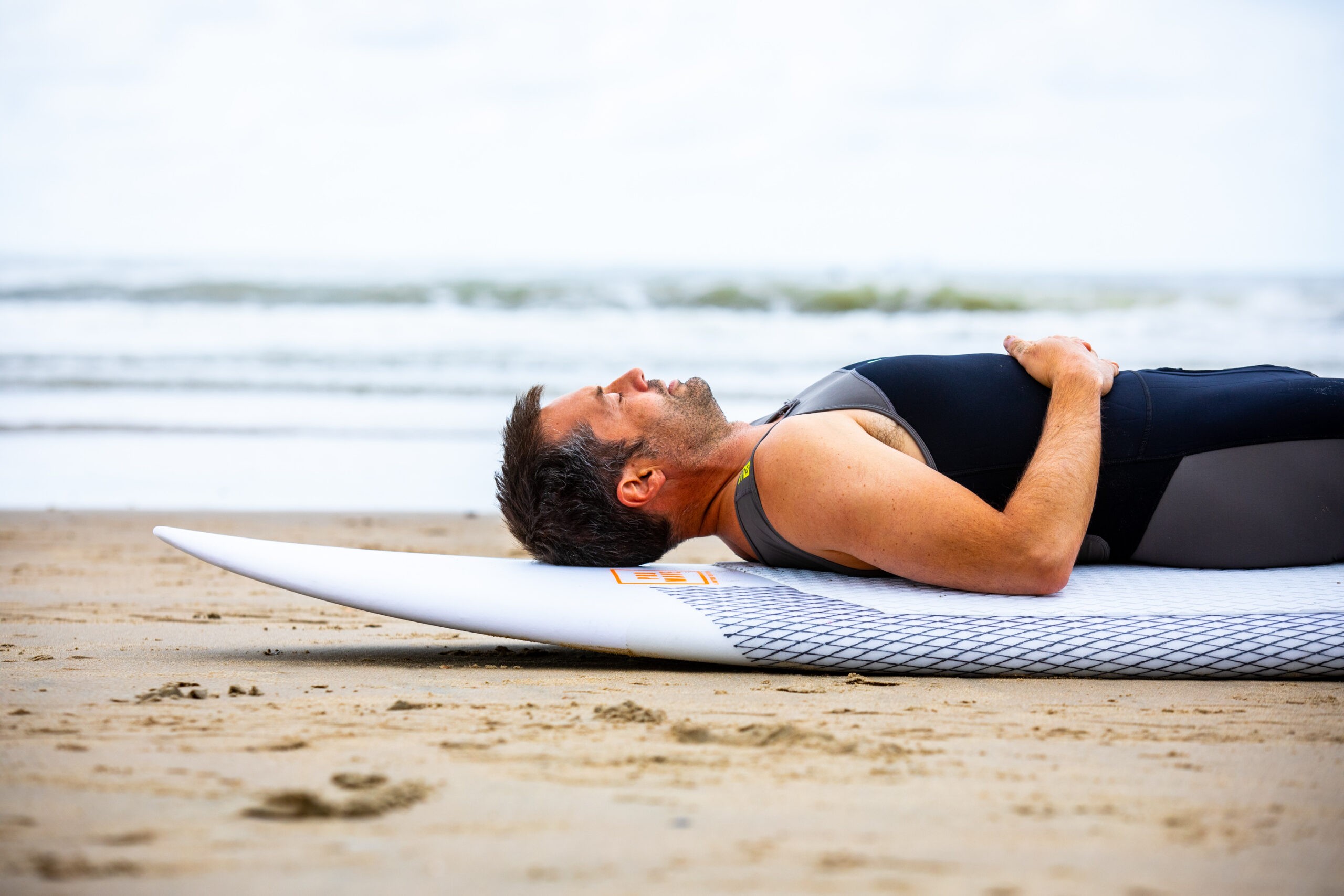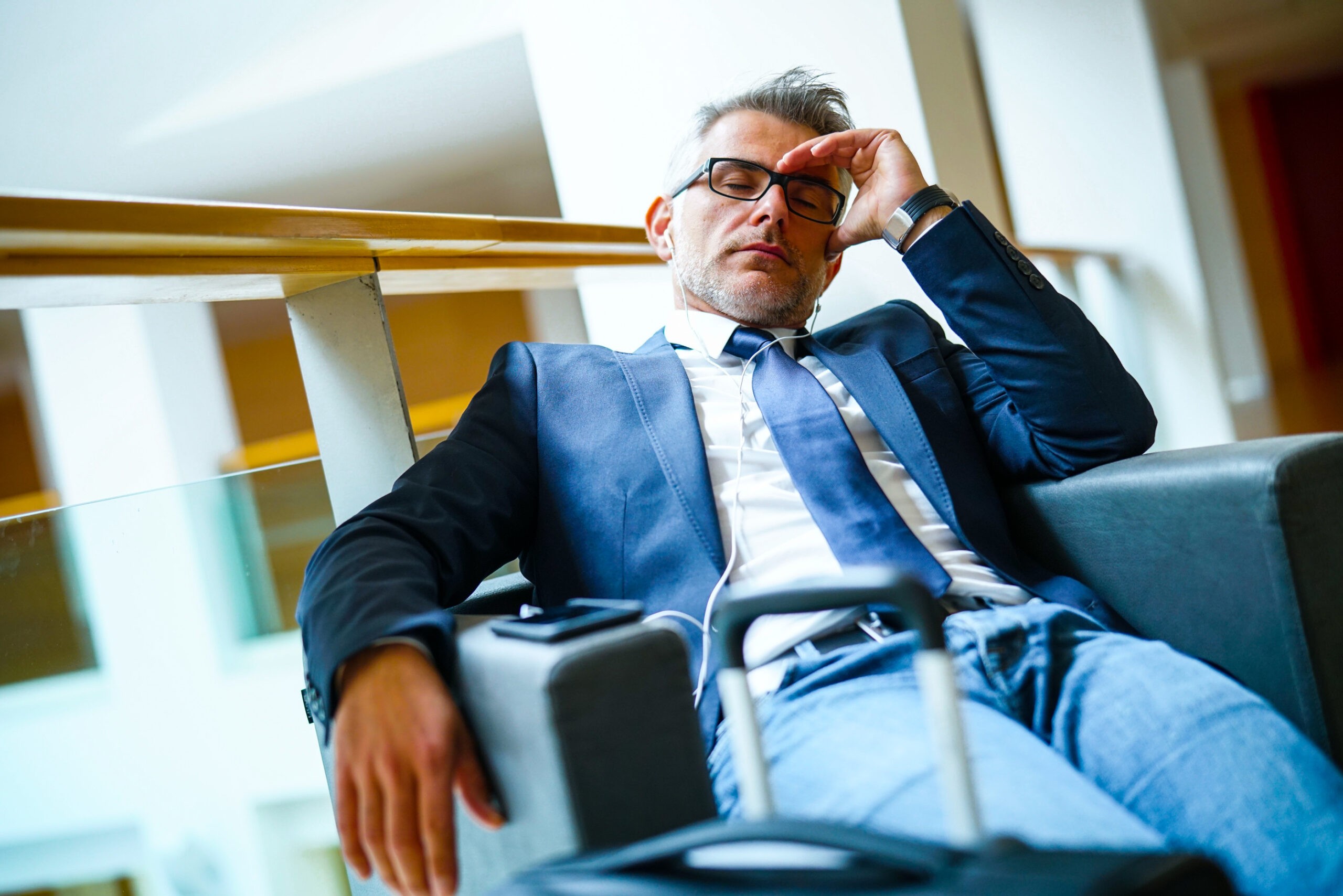Minimize Jetlag
In general, people are not equally susceptible to the complaints of jetlag. Some people might have pre-existing conditions that can exacerbate symptoms, others don’t. But, like with most things, if you are in good shape, you will be able to cope better with jetlag. In other words, if you normally Eat, Move, Sleep & Relax well, you will be much better off.
Equally, if you’re in bad shape, and you have plans for travelling long distance, then you’d better shape up. When you’re traveling between time zones, there are ways to minimize jetlag.

Though they might not work equally well for everyone, these tips just may keep you from yawning your way through the few first days after arriving at your destination.
(Just) before you travel
Tip 1 – Begin to reset your body clock
Begin to reset your body clock. When you are travelling for more than three days, always adjust to the local time. Begin to reset your body clock a few days (or more if possible) before you travel.
If you’re travelling westwards: go to bed at least one or two hours later than normal, sleep in (if possible) on the days before the trip and seek exposure to bright light in the evening. Do some work after dinner and watch a movie late at night. This time, it is allowed!
When travelling eastwards: try going to sleep one or two hours earlier than you usually do and get out of bed earlier as well on the days leading up to your trip. Avoid bright light in the evening before you go to bed and, if possible, get out into the early morning sun.
To help you figure out exactly how much and when to reset your sleep schedule there are some online calculators, apps and devices to help you adjust to a time change before you depart. One of my favorites is called Jetlag Rooster. Please see www.jetlagrooster.com
Note: If you are only staying for one or two days, then don’t adjust! Just stay on your regular clock as much as possible.
Tip 2 – Eat healthy.
Although the idea of a juicy steak, fries and a few beers at the airport may sound tempting, these are not ideal food items to reach for when you have a long flight ahead. Getting a heavy meal might help you to stack up some energy, but it surely comes at a cost, by putting extra (digestive) stress on your body.
Your body is about to embark on a demanding journey. It will have to deal with the adjustments of its internal clock, the long sit, lack of movement and poor air and food quality along the way. So grab your chance and stock up on some high quality nutrients while you can.
On board
Tip 3 – Change your clock.
This will help you to get into the right mindset. Drink lots of water, or even better: tomato juice! Apart from the fact that drinking much water can help you stay hydrated, drinking a lot of water (at least a glass per hour) will make you have to go to the bathroom more often, which gets you out of your seat.
Note: Trading off sugar-rich or alcoholic beverages for tomato juice is a good idea for several reasons. First, your body doesn’t have to deal with the junk.
Second, tomato juice gives us a healthy dose of vitamins and minerals we can really use while travelling. Third, just one glass of tomato juice will give us our daily dosage of Lycopene, a powerful antioxidant with various positive effects for your health. Last but not least; tomato juice tastes much better on a plane because of the low cabin pressure and low humidity. This is probably why tomato juice is ordered almost as often as beer on board of airplanes.
Tip 4 – Move around as much as you can.
At least every two hours. If possible, also stand up for a few seconds every hour that you are awake. This will help you to partly counter the negative effects of the prolonged sitting.
When seated, exercise your legs from time to time. Move them back and forth and up and down. These small movements will energize your body and mind, which can both ease the symptoms of jet- lag. Furthermore, they significantly reduce the risk of developing thrombosis and with that, pulmonary embolism, both serious health threats. If you need inspiration, check the inflight magazines. Nowadays most of them will include a number of visuals and explanations of exercises you can do.
Tip – 5 Avoid or minimize alcohol.
It dehydrates and disturbs your sleeping schedule. On top of that the breaking down of alcohol in your liver will cost you a lot of extra energy, which your body desperately needs to deal with all the consequences of resetting your biological clock.
Tip 6 – Avoid or minimize caffeine.
It can also dehydrate and disturb sleeping schedules, just like alcohol. What’s more, caffeine can also ‘rattle’ your nerves and intensify travel anxiety.
Tip 7 – Get more space.
I’m not saying that everybody should fly business class, but at least try to book an aisle seat (as you will be more inclined to stand up and stretch your legs) and if you can afford an upgrade to ‘economy-plus’ or business class, that might be a big energy saver, especially on long flights.
Tip 8 – Wear comfortable clothes.
How you dress affects how your feel on that long haul. I suggest you leave your suit, or high heels and anything that pinches in your suitcase.
Tip 9 – Get a headphone with noise-reduction.
To avoid irritation from chatter behind you, or lying awake because of the not-so-happy babysitting close by.
Note: Recently airlines have started adding anti-jetlag features to their fleets (for example aircrafts like the Boeing 787 Dream Liners and Airbus 350 XWB), focusing on lighting and cabin pressure. The lighting on board mimics natural sunrises and sunsets to better regulate the body’s production of the sleep hormone melatonin, and its cabin pressure is set at a more comfortable 6,000 feet (it’s usually maximized at 8,000 feet, comparable to 2,400 meters above sea level).
On arrival
Tip 10 – Get on the local time.
Sleep and eat at regular times. Exposing yourself to natural light (on regular times) at your destination is a crucial factor for resetting your biological clock. Exposing yourself to bright light at the ‘wrong times’ can prevent you from aligning your body clock to the time zone of your destination.
The sooner you get on the local schedule, the better. If you are travelling east (let’s say from New York to Paris or from Amsterdam to Hong Kong) and you arrive in the morning local time after a long night flight (in which you probably did not get enough sleep), then try to stay up the next day, and expose yourself to sunlight through-out the day by taking walks or sitting outside. This will signal your hypothalamus and reduce the production of melatonin, thereby starting the process of resetting your biological clock.
Tip 11 – At night, go to bed early.
Your day has been long enough, and do NOT stay up late watching TV or working on your laptop, preparing for the next day. When travelling west, try to get at least an hour of sunlight as soon as possible after reaching your destination. And when you go to bed, don’t forget to close the curtains, especially in summer. Try to ‘sleep in’, or at least keep your lights turned off, until it’s morning; get up at a regular time!
Tip 12 – Work out if possible.
Or go for a swim, this will help to get important neurotransmitters and hormone levels on par. Dopamine, serotonin, endorphins, they all benefit from exercise and help to make you feel better.
Tip 13 – Use your mindset.
If you are having trouble with the new situation, be strong. It might cost you a little bit of willpower to stay on the new clock, but really making an effort pays off quickly. It is also good to realize that, after crossing many time zones you will not be yourself for a few days. So, it may be smart to avoid strategic decision-making in the first 24 to 48 hours upon arrival.



